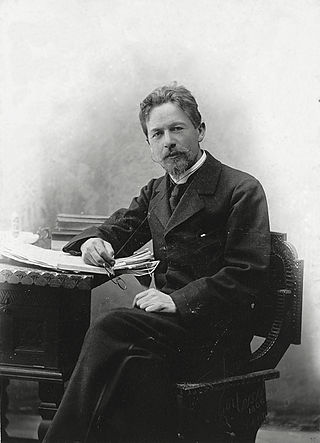
Anton Pavlovich Chekhov was a Russian playwright and short-story writer who is considered to be one of the greatest writers of all time. His career as a playwright produced four classics, and his best short stories are held in high esteem by writers and critics. Along with Henrik Ibsen and August Strindberg, Chekhov is often referred to as one of the three seminal figures in the birth of early modernism in the theatre. Chekhov was a physician by profession. "Medicine is my lawful wife", he once said, "and literature is my mistress."
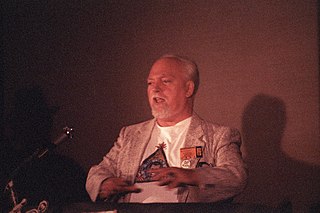
Robert Anton Wilson was an American author, futurist, psychologist, and self-described agnostic mystic. Recognized within Discordianism as an Episkopos, pope and saint, Wilson helped publicize Discordianism through his writings and interviews. In 1999 he described his work as an "attempt to break down conditioned associations, to look at the world in a new way, with many models recognized as models or maps, and no one model elevated to the truth". Wilson's goal was "to try to get people into a state of generalized agnosticism, not agnosticism about God alone but agnosticism about everything."
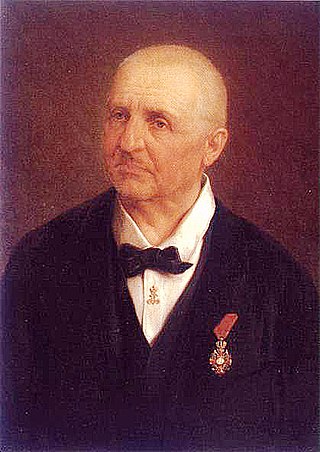
Josef Anton Bruckner was an Austrian composer and organist best known for his symphonies and sacred music, which includes Masses, Te Deum and motets. The symphonies are considered emblematic of the final stage of Austro-German Romanticism because of their rich harmonic language, strongly polyphonic character, and considerable length. Bruckner's compositions helped to define contemporary musical radicalism, owing to their dissonances, unprepared modulations, and roving harmonies.
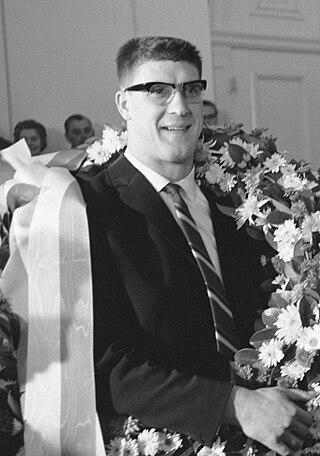
Antonius Johannes Geesink was a Dutch 10th dan judoka. He was the first non-Japanese judoka to win gold at the World Judo Championship, a feat he accomplished in 1961 and 1965. He was also an Olympic Champion, having won gold at the 1964 Summer Olympics in Japan, and won a record 21 European Judo Championships during his career.
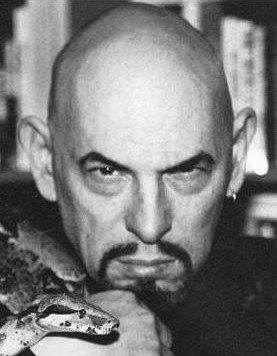
Anton Szandor LaVey was an American author, musician, and Satanist. He was the founder of the Church of Satan and the religion of Satanism. He authored several books, including The Satanic Bible, The Satanic Rituals, The Satanic Witch, The Devil's Notebook, and Satan Speaks! In addition, he released three albums, including The Satanic Mass, Satan Takes a Holiday, and Strange Music. He played a minor on-screen role and served as technical advisor for the 1975 film The Devil's Rain and served as host and narrator for Nick Bougas' 1989 mondo film Death Scenes.

Anton Zeilinger is an Austrian quantum physicist and Nobel laureate in physics of 2022. Zeilinger is professor of physics emeritus at the University of Vienna and senior scientist at the Institute for Quantum Optics and Quantum Information of the Austrian Academy of Sciences. Most of his research concerns the fundamental aspects and applications of quantum entanglement.

Anton Viktorovich Yelchin was an American actor. Born in the Soviet Union to a Russian Jewish family, he emigrated to the United States with his parents at the age of 6 months. He began his career as a child actor, appearing as the lead of the mystery drama film Hearts in Atlantis (2001) and a series regular on the Showtime comedy-drama Huff (2004–2006). Yelchin landed higher-profile film roles in 2009, portraying Lieutenant Pavel Chekov in the Star Trek reboot and Kyle Reese in Terminator Salvation. He reprised his role as Chekov in the sequels Star Trek Into Darkness (2013) and Star Trek Beyond (2016).
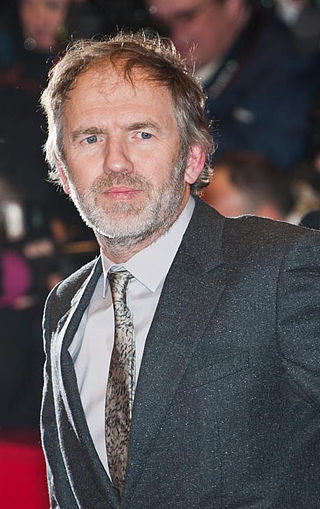
Anton Johannes Gerrit Corbijn van Willenswaard is a Dutch photographer, film director and music video director. He is the creative director behind the visual output of Depeche Mode and U2, having handled the principal promotion and sleeve photography for both bands over three decades. Some of his works include music videos for Depeche Mode's "Enjoy the Silence" (1990), U2's "One" (1991), Bryan Adams' "Do I Have to Say the Words?", Nirvana's "Heart-Shaped Box" (1993) and Coldplay’s "Talk" (2005) and "Viva la Vida" (2008), as well as the Ian Curtis biographical film Control (2007), The American (2010), A Most Wanted Man (2014), based on John le Carré's 2008 novel of the same name and Life (2015), after the friendship between Life magazine photographer Dennis Stock and James Dean.

Anton Lesser is an English actor. He is well known for his roles as Qyburn in the HBO series Game of Thrones, Thomas More in Wolf Hall, Harold Macmillan in The Crown, Clement Attlee in A United Kingdom, Chief Superintendent Bright in Endeavour and Major Partagaz in Star Wars: Andor. An associate of the Royal Shakespeare Company, he has performed numerous Shakespearean roles on stage and television.

The Magnificat, WAB 24 is a setting of the Magnificat for SATB choir and soloists, orchestra and organ composed by Anton Bruckner in 1852.

Germanenzug is a secular, patriotic cantata composed in 1863–1864 by Anton Bruckner on a text by August Silberstein.

Vor Arneths Grab, WAB 53, is an elegy composed by Anton Bruckner in 1854, for men's voices and three trombones.

Laßt Jubeltöne laut erklingen, WAB 76, is a festive song composed by Anton Bruckner in 1854.

Abendklänge, WAB 110, is a character piece for violin and piano, which Anton Bruckner composed in 1866.

Du bist wie eine Blume, WAB 64, is a song, which Anton Bruckner composed in 1861.

Das Lied vom deutschen Vaterland, WAB 78, is a patriotic song composed by Anton Bruckner in c. 1845 during his stay in St. Florian.

Das edle Herz, WAB 66, is a song composed by Anton Bruckner in December 1857 during his stay in Linz. During his stay in St. Florian, Bruckner had already composed a first setting of the song for men's choir, WAB 65.

Vaterlandslied, WAB 92, is a patriotic song composed by Anton Bruckner during his stay in Linz.

Vaterländisch Weinlied, WAB 91, is a song composed by Anton Bruckner in 1866 during his stay in Linz.

Mein Herz und deine Stimme, WAB 79 is a lied composed by Anton Bruckner in 1868.





















